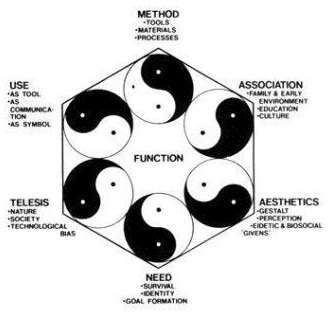 Painting, Lions Gate Studios, by my neighbour Laura Tomona What it all means this week: The Coming Geriatric Crisis: The New Yorker points out yet another looming crisis that we’re not prepared for: the explosion of geriatric patients that no one is trained to, or wants to, care for. Some frightening data: We cling to the notion of retirement at sixty-fiveóa reasonable notion when those over sixty-five were a tiny percentage of the population, but completely untenable as they approach twenty per cent. People are putting aside less in savings for old age now than they have in any decade since the Great Depression. More than half of the very old now live without a spouse, and we have fewer children than ever beforeóyet we give virtually no thought to how we will live out our later years alone.
Equally worrying, and far less recognized, medicine has been slow to confront the very changes that it has been responsible foróor to apply the knowledge we already have about how to make old age better. Despite a rapidly growing elderly population, the number of certified geriatricians fell by a third between 1998 and 2004. Applications to training programs in adult primary-care medicine are plummeting, while fields like plastic surgery and radiology receive applications in record numbers. Partly, this has to do with moneyóincomes in geriatrics and adult primary care are among the lowest in medicine. And partly, whether we admit it or not, most doctors donít like taking care of the elderly [they’re difficult patients to care for and their illnesses are unglamourous and often incurable]. Research That Matters: Aaron Swartz is collecting examples of research that, if it were acted upon, could change the way we think about and work to solve intractable problems. The response to date is remarkable and thought-provoking. Kind of like a collaborative freakonomics. Bookmark this page! Thanks to Jeff Donner for the link. Visualization Tools: An interesting visualization portrays 100 different visualization tools you can use to add meaning and value to information. Thanks to Craig De Ruisseau for the link. More Ideas for Greening the World: Anti-poverty crusader Jonny Platt offers 155 ways you can fight climate change. How Bush is Closing Down US Society: Naomi Wolf explains how authoritarians shut down societies to curtain opposition and dissent, and how the Bush regime is following precisely in their footsteps.
Powers cites Ethan Zuckerman as saying this is why Africa is such a great place to focus problem-solving attention: Something thatís very important in technology research is problem selection. If you choose a boring problem to solve, you get boring technologies. If you choose a fascinating problem and are able to solve it, you can start a revolution. Right now, there are much more interesting problems in African technology than there are in the developed world, in my opinion. I think that smart computer science students around the world should be looking at the developing world for challenges to address ñ power usage, wireless networking, non-verbal interfaces, computer-based systems for microentrepreneurship. Itís a huge advantage for African innovators to be surrounded by interesting, worthwhile problems.
So, says Powers, if we think about energy problems from a North American perspective, our thinking is constrained by our awareness of the coming End of Oil and our addiction to it. But in much of Africa the End of Oil is not a significant constraint, and other problems take centre stage. What we need to do is develop and reconcile what Powers calls our Local Soul (that which knows and appreciates local context) and our Global Soul (that which can draw upon radically different contexts and ideas that have arisen in them). One way to do that, he says, is through stories, like those that the Totnes Transition Culture intentional community is compiling about a post-oil future. As these stories enrich our understanding of the context of the future, it can help us to better design ways to transition to that future. Truly Radical Islam: Irshad Manji fearlessly challenges the misogyny, fear-mongering, self-oppression and scapegoating of much contemporary Islamic thought and dares Muslims to rediscover and embrace Islam’s proud and peaceful roots, reports PBS. Thanks to fellow Torontonian Mahjong Cory for the link. Lawyers Doing Good Work: I trash lawyers a lot on these pages, but the lawyers at EarthJustice are doing some good work. They have a good library for environmental activists, and need our help boycotting farmed salmon. …And Judges Doing Despicable Work: The US supreme court, in a strictly ideological and partisan decision, has upheld the Bush abortion ban, and stripped doctors of the ability to make medical decisions in the best interests of their patients. So much for the last shreds of its credibility. Layoffs Are Bad for the Economy: James Surowiecki eloquently challenges the conventional wisdom that poor profits (and falling stock prices) can be remedied by layoffs. |
Navigation
Collapsniks
Albert Bates (US)
Andrew Nikiforuk (CA)
Brutus (US)
Carolyn Baker (US)*
Catherine Ingram (US)
Chris Hedges (US)
Dahr Jamail (US)
Dean Spillane-Walker (US)*
Derrick Jensen (US)
Dougald & Paul (IE/SE)*
Erik Michaels (US)
Gail Tverberg (US)
Guy McPherson (US)
Honest Sorcerer
Janaia & Robin (US)*
Jem Bendell (UK)
Mari Werner
Michael Dowd (US)*
Nate Hagens (US)
Paul Heft (US)*
Post Carbon Inst. (US)
Resilience (US)
Richard Heinberg (US)
Robert Jensen (US)
Roy Scranton (US)
Sam Mitchell (US)
Tim Morgan (UK)
Tim Watkins (UK)
Umair Haque (UK)
William Rees (CA)
XrayMike (AU)
Radical Non-Duality
Tony Parsons
Jim Newman
Tim Cliss
Andreas Müller
Kenneth Madden
Emerson Lim
Nancy Neithercut
Rosemarijn Roes
Frank McCaughey
Clare Cherikoff
Ere Parek, Izzy Cloke, Zabi AmaniEssential Reading
Archive by Category
My Bio, Contact Info, Signature Posts
About the Author (2023)
My Circles
E-mail me
--- My Best 200 Posts, 2003-22 by category, from newest to oldest ---
Collapse Watch:
Hope — On the Balance of Probabilities
The Caste War for the Dregs
Recuperation, Accommodation, Resilience
How Do We Teach the Critical Skills
Collapse Not Apocalypse
Effective Activism
'Making Sense of the World' Reading List
Notes From the Rising Dark
What is Exponential Decay
Collapse: Slowly Then Suddenly
Slouching Towards Bethlehem
Making Sense of Who We Are
What Would Net-Zero Emissions Look Like?
Post Collapse with Michael Dowd (video)
Why Economic Collapse Will Precede Climate Collapse
Being Adaptable: A Reminder List
A Culture of Fear
What Will It Take?
A Future Without Us
Dean Walker Interview (video)
The Mushroom at the End of the World
What Would It Take To Live Sustainably?
The New Political Map (Poster)
Beyond Belief
Complexity and Collapse
Requiem for a Species
Civilization Disease
What a Desolated Earth Looks Like
If We Had a Better Story...
Giving Up on Environmentalism
The Hard Part is Finding People Who Care
Going Vegan
The Dark & Gathering Sameness of the World
The End of Philosophy
A Short History of Progress
The Boiling Frog
Our Culture / Ourselves:
A CoVid-19 Recap
What It Means to be Human
A Culture Built on Wrong Models
Understanding Conservatives
Our Unique Capacity for Hatred
Not Meant to Govern Each Other
The Humanist Trap
Credulous
Amazing What People Get Used To
My Reluctant Misanthropy
The Dawn of Everything
Species Shame
Why Misinformation Doesn't Work
The Lab-Leak Hypothesis
The Right to Die
CoVid-19: Go for Zero
Pollard's Laws
On Caste
The Process of Self-Organization
The Tragic Spread of Misinformation
A Better Way to Work
The Needs of the Moment
Ask Yourself This
What to Believe Now?
Rogue Primate
Conversation & Silence
The Language of Our Eyes
True Story
May I Ask a Question?
Cultural Acedia: When We Can No Longer Care
Useless Advice
Several Short Sentences About Learning
Why I Don't Want to Hear Your Story
A Harvest of Myths
The Qualities of a Great Story
The Trouble With Stories
A Model of Identity & Community
Not Ready to Do What's Needed
A Culture of Dependence
So What's Next
Ten Things to Do When You're Feeling Hopeless
No Use to the World Broken
Living in Another World
Does Language Restrict What We Can Think?
The Value of Conversation Manifesto Nobody Knows Anything
If I Only Had 37 Days
The Only Life We Know
A Long Way Down
No Noble Savages
Figments of Reality
Too Far Ahead
Learning From Nature
The Rogue Animal
How the World Really Works:
Making Sense of Scents
An Age of Wonder
The Truth About Ukraine
Navigating Complexity
The Supply Chain Problem
The Promise of Dialogue
Too Dumb to Take Care of Ourselves
Extinction Capitalism
Homeless
Republicans Slide Into Fascism
All the Things I Was Wrong About
Several Short Sentences About Sharks
How Change Happens
What's the Best Possible Outcome?
The Perpetual Growth Machine
We Make Zero
How Long We've Been Around (graphic)
If You Wanted to Sabotage the Elections
Collective Intelligence & Complexity
Ten Things I Wish I'd Learned Earlier
The Problem With Systems
Against Hope (Video)
The Admission of Necessary Ignorance
Several Short Sentences About Jellyfish
Loren Eiseley, in Verse
A Synopsis of 'Finding the Sweet Spot'
Learning from Indigenous Cultures
The Gift Economy
The Job of the Media
The Wal-Mart Dilemma
The Illusion of the Separate Self, and Free Will:
No Free Will, No Freedom
The Other Side of 'No Me'
This Body Takes Me For a Walk
The Only One Who Really Knew Me
No Free Will — Fightin' Words
The Paradox of the Self
A Radical Non-Duality FAQ
What We Think We Know
Bark Bark Bark Bark Bark Bark Bark
Healing From Ourselves
The Entanglement Hypothesis
Nothing Needs to Happen
Nothing to Say About This
What I Wanted to Believe
A Continuous Reassemblage of Meaning
No Choice But to Misbehave
What's Apparently Happening
A Different Kind of Animal
Happy Now?
This Creature
Did Early Humans Have Selves?
Nothing On Offer Here
Even Simpler and More Hopeless Than That
Glimpses
How Our Bodies Sense the World
Fragments
What Happens in Vagus
We Have No Choice
Never Comfortable in the Skin of Self
Letting Go of the Story of Me
All There Is, Is This
A Theory of No Mind
Creative Works:
Mindful Wanderings (Reflections) (Archive)
A Prayer to No One
Frogs' Hollow (Short Story)
We Do What We Do (Poem)
Negative Assertions (Poem)
Reminder (Short Story)
A Canadian Sorry (Satire)
Under No Illusions (Short Story)
The Ever-Stranger (Poem)
The Fortune Teller (Short Story)
Non-Duality Dude (Play)
Your Self: An Owner's Manual (Satire)
All the Things I Thought I Knew (Short Story)
On the Shoulders of Giants (Short Story)
Improv (Poem)
Calling the Cage Freedom (Short Story)
Rune (Poem)
Only This (Poem)
The Other Extinction (Short Story)
Invisible (Poem)
Disruption (Short Story)
A Thought-Less Experiment (Poem)
Speaking Grosbeak (Short Story)
The Only Way There (Short Story)
The Wild Man (Short Story)
Flywheel (Short Story)
The Opposite of Presence (Satire)
How to Make Love Last (Poem)
The Horses' Bodies (Poem)
Enough (Lament)
Distracted (Short Story)
Worse, Still (Poem)
Conjurer (Satire)
A Conversation (Short Story)
Farewell to Albion (Poem)
My Other Sites





